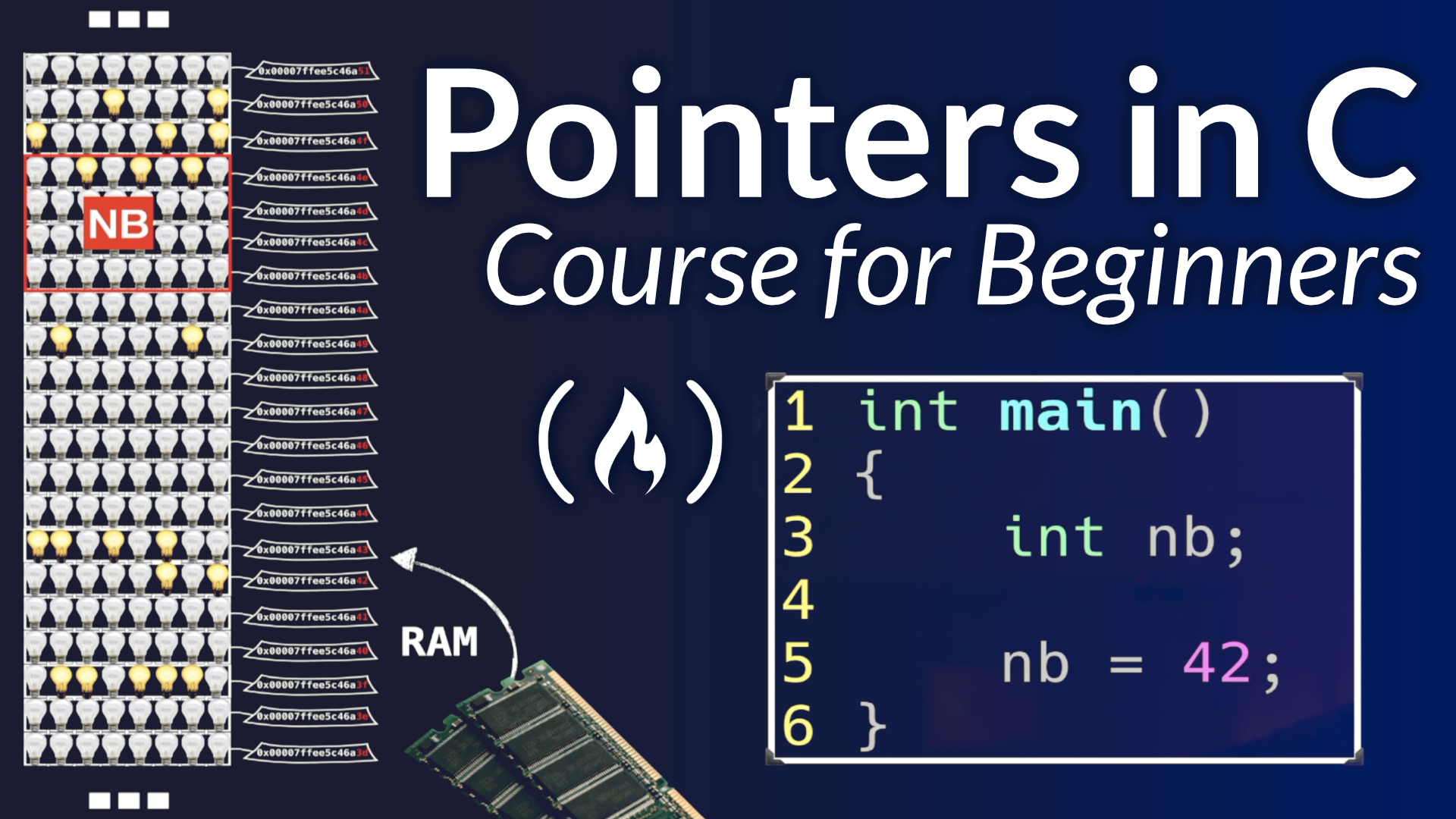There are few things in the programming universe that seem as daunting to beginners as pointers in C. Many new programmers shy away from tackling this essential component of the C programming language, which can leave a critical gap in their knowledge.
We just posted a full course on the freeCodeCamp.org YouTube channel that will help you understand this important concept.
Jalal Bounaim developed this course. He is an experienced developer and created the course he would have wanted when he first started programming in C.
This course is tailored for absolute beginners, ensuring no prior knowledge of pointers is required. It systematically demystifies pointers, their use, and the significance they hold in C programming. Pointers, simply put, are variables that store the memory address of another variable – they "point" to the location of data in memory. By the end of the course, you'll have a robust understanding of these powerful tools, and be able to confidently use them in your own coding projects.
The course begins with a brief introduction and then proceeds to explain what a computer is, with an emphasis on CPU, RAM, and bytes. This foundational knowledge is key to understanding how memory works, which is central to the concept of pointers.
The course moves forward to cover a range of topics, including:
- Data types
- Introduction to processes
- Process memory layout
- Variables in memory
- An illustration of a naive change_value program
- How to use pointers to change the value
- The classic swap problem
The course then delves into more specific aspects of pointers. You will learn the reason behind the identical syntax for pointer declaration and dereference, the advantages of passing by reference versus passing by value, and explore why pointers to different data types have the same size.
But that's not all! The course continues to address some commonly raised questions and confusions about pointers:
- Why do we need a pointer type if all pointers have the same size?
- What exactly are void pointers, and why do they confuse many programmers?
- What is malloc, and why is it handy? What does it have to do with void pointers?
- Are arrays just pointers?
Then, we'll dive into some of the more sophisticated aspects of pointers:
- Why arr[5] and 5[arr] are equivalent
- Introduction to pointers to pointers with **argv
- Understanding *argv[] or **argv
- Pointers to functions
- Use case with pointers to functions
Jalal created this course to be as comprehensive as possible, packed with examples that illustrate how pointers work in a variety of scenarios. Each concept is explained in easy-to-understand terms, ensuring you not only learn how to use pointers but also understand the theory behind them.
Whether you're a budding coder or a seasoned programmer wanting to fill in gaps in your understanding, our course on Pointers in C is sure to offer valuable insights that will take your coding abilities to the next level. So what are you waiting for?
Watch the full course on the freeCodeCamp.org YouTube channel (2-hour watch).
